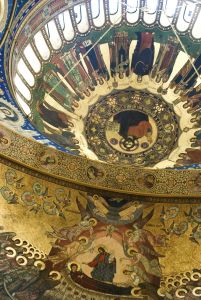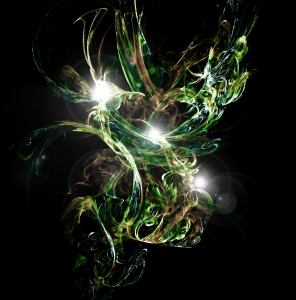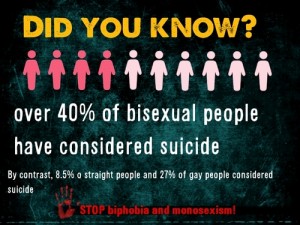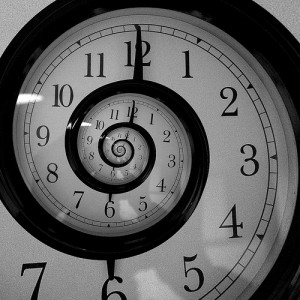Science and religion are often depicted as two diametrically opposed entities in human thought. And it’s true, even undeniable, that science often times serves a different purpose than religion. But beyond obvious reasons, could science and religion have more in common than we believe? In fact, could they be tangled within a lover’s quarrel that’s lasted ever since Galileo first sent his Letter to the Grand Duchess Christina?
Pythagoras of Samos in the sixth century BCE abandoned his life, his wife, kids, everything, to establish what we would today refer to as a cult. But many at the time revered Pythagoras as a prophet. And despite its inner core being more secretive than Scientology, we know the basic semblance of what Pythagoras preached to the members of the Pythagorean Brotherhood. It was mostly related to how geometry, and other forms of mathematics, operated as a form of prayer that, when used properly, could grant a member with some sort of divine state. Of course there were other things about the Pythagorean Brotherhood, most of which is unknown or trivial, such as the added importance of music and gymnastics to create a disciplined environment. But, in essence, this wouldn’t be the last time science and religion combined efforts.
In the twelfth century CE, the Scholastics came about within medieval Europe. They played a crucial role in the transition from the Dark Ages into the Renaissance by revolutionizing the Church and divine thought. It was because of the Scholastics that the rediscovery of Greek and Roman Classics came about, and they were also some of the first groups of people within the Church to believe Copernicus’ theory of heliocentricism. This was primarily because the Scholastics shook off their medieval Neo-Platonic shackles, and embraced Aristotle’s natural science and empiricism—in essence, a posteriori knowledge was introduced to medieval Europe.
And of course, Arabic scientists and philosophers had been interrelating science and religion years before it ever became present within the West. If one were to go back far enough into any culture’s background, they would find a time in which people used science and religion interchangeably. It is a rather recent phenomenon, perhaps brought on by the secularization of the Enlightenment, that science and religion have come at odds with one another.
Many point to Galileo’s torture and imprisonment as the initial incident that set of the spark that would put the two at odds. But, as anyone who has read Galileo’s biography, much of the Church’s imposed punishment of Galileo was not due to his science but rather for more personal reasons. For example, Galileo wrote the ‘Dialogue Concerning the Two Chief World Systems’ in which he presented the argument that heliocentricism using three characters, Salviati, Sagredo, and Simplicio (no explanation needed). Simplicio was the fictional embodiment of Pope Urban VIII at the time. Needless to say, it pissed the pope off, especially considering that he and Galileo had been friends for years previously. Pope Urban VIII interpreted it as a betrayal. Of course there were other things, mostly dealing with Galileo’s acerbic attitude that was mostly the result of his egoism, but invariably most people only remember the Inquisition papers’ justification for his imprisonment and not the whole story that led up to it. And then of course Galileo was imprisoned in his very nice house, not in some medieval dungeon, and was allowed to continue his study of motion—which research contributed to Newton’s law of gravity. So, his life was terribly tragic.
At the core of both science and religion there lies inherent qualities that interrelate the two’s purpose. Religion, mostly is a form answers presented to resolve daunting questions that man has had since the dawn of time (or consciousness, I might add). Science as well operates in this similar function, but the questions in which it answers relate back to observable phenomenon, or, at worst, quantifiable research. Sure, one could make the argument that science’s duty is to verify its answers beyond a doubt (scientific method), and then that religion merely uses deification and divine explanations to answer questions. But do we actually truly use them in that way.
I mean, beyond people trained (or educated) as scientists or priests or researchers or clergymen, laymen typically use science and religion in the same capacity. If I were to tell you that the universe is moving away from itself and that eventually, way down the road, the universe will be incapable to supporting any life, much less human, then you probably wouldn’t believe me. But if I were to say that scientific evidence not only suggests this but proves it, then you would probably be more willing to believe it. Despite the fact that most people have never seen these objects in space move away from each other, they implicitly accept it as true because science says so. And of course they should, because the universe is in fact expanding. But the point remains: if science gives its stamp of approval, then it’s likely to be agreed upon by a mass majority.
 As another example, there’s the case for dark matter, which reportedly makes up a significant amount of the universe, and even quantum foam, which makes up spacetime. Never mind the fact that scientists have never seen these entities or phenomenon. But there is an implicit acceptance of their existence—mostly because it makes sense for the universe to operate the way it does. Both, though, in theory look very similar to Plato’s explanation of invisible matter called ether, and that the universe was primarily composed of things that we cannot perceive and/or see, which is not entirely dissimilar to modern day science. In fact, most commentators have related the elusive nature of proving dark matter as to that of a deity.
As another example, there’s the case for dark matter, which reportedly makes up a significant amount of the universe, and even quantum foam, which makes up spacetime. Never mind the fact that scientists have never seen these entities or phenomenon. But there is an implicit acceptance of their existence—mostly because it makes sense for the universe to operate the way it does. Both, though, in theory look very similar to Plato’s explanation of invisible matter called ether, and that the universe was primarily composed of things that we cannot perceive and/or see, which is not entirely dissimilar to modern day science. In fact, most commentators have related the elusive nature of proving dark matter as to that of a deity.
We have a natural tendency to lean towards scientific idealism in solving the world’s problems much in the same way that we also turn towards religion. Scientists have, twenty plus years ago, diagnosed that man is destroying the earth through global climate change, pollution, exhaustion of natural resources, and much more, though we look to science to one day solve all those problems without taking any effective change ourselves. How is praying away disease and poverty any different from expecting scientists to come up with a cure for natural disasters?
Society has come to a point where science and religion represent two entirely different aspects and, for the most part, serve different purposes. But that does not negate how we treat science and religion much in a similar fashion, or the fact that the essence of science and religion is the pursuit of truth in some form. So yeah, it’s easy to make leaping distinctions on how the two are different, but it’s false to conceive them as polar opposites.
Science and Religion: A Sordid Love Affair,




